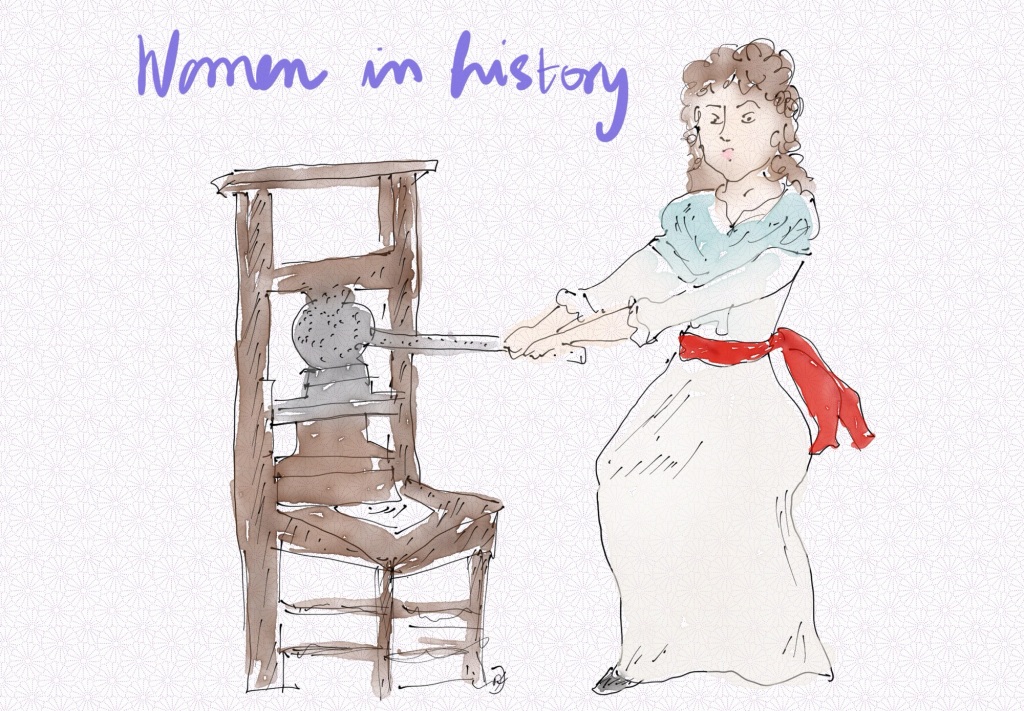In the Letters on Sympathy (1798) Sophie de Grouchy argues that the way to reduce injustice is to make it the case that ‘laws no longer support wealth inequality’ (134). She suggests that a fair distribution of the resources a country like France in the 18th century has to offer, even accounting for a degree of ‘natural inequality’, even the poorest members of society would be well-off, owing on average ‘two or three acres of crop’ which corresponds to ‘fifty livres’ (134).
Aside from the abolition of poverty, which is one of the main causes of crime, she says, reducing the gap between the very rich and the very poor would mean making it harder for members of these classes to injure each other:
“It is because the extreme inequality of fortunes, and the great distance there is between one class and the other, renders men strangers to each other. Virtues cannot recognize each other unless they be placed, by chance, at the same level. The powerful man and the worker in his employ are too far removed from each other to be able to judge one another. And because their respective duties seem to get lost in the distance between them, the one may oppress the other nearly without remorse, while the other will in turn cheat him with impunity, even believing that he is in this way bringing justice to himself.” 151-2.
The type of scenario she describes is not alien to us: we can vividly picture Jeff Bezos and one of the Amazon factory workers in this situation. Not much has changed in this respect.
But this might be the point: not much has changed. And is the reason not much has due to the caution of writers, like Grouchy, who only wanted to minimize, rather than eliminate wealth inequalities? 18th century authors in general, for all their talk of equality, couldn’t quite get their heads around the concept. Emmanuel Sieyes, for instance, praised for his article on the Third Estate, arguing that workers ought to participate in the choices that France was about to make, because they constitute the great majority of the population, and in fact could be said to be the ‘soul of the nation’ struggled with the idea that anyone but the richest of the white and male section of the third estate should be allowed to participate fully in politics. And we when we look at Sophie de Grouchy, it comes to mind, perhaps, that she came from an extremely rich family, and married an extremely rich man. Would she have wanted to protect some of her privileges?
Is her focus on extreme inequality a weakness of her philosophy, a sign that she wasn’t quite as sincere as she thought she was in her desires for reform? There’s another way of looking at it: what Grouchy is proposing is a realistic reform project for a very real problem, which is brought on not by wealth inequality as such, but by extreme wealth.
In Limitarianism, Ingrid Robeyns describes the willingness, desire, even, of certain extremely wealthy people to be taxed fully and fairly: it’s either the taxes of the pitchforks, they say (chapter 8). The very rich of 18th century France got the pitchforks (and the guillotine). And I am strongly inclined to believe that wealth inequality then had not much on what it is now, if Robeyn’s numbers are anything to go by.
Extreme inequality can be fixed at least partly by taxation and reforming inheritance laws, argues Robeyns convincingly (chapter 9). Tax money can go towards infrastructures that benefit all, but perhaps especially those that are poorest – basic income, free school lunches (and breakfasts!) national healthcare, etc. Tax reform won’t bring about complete wealth equality, true, but it’s not clear that this would be an answer to the problems we are trying to fix – poverty, exploitation of human beings and natural resources – and those we want to avoid – civil unrest, ecological disasters. Maybe Sophie de Grouchy too, rather than trying to avoid looking too closely at her own privileges, was interested in solving some of those problems. Certainly, having lived through one revolution, she was not keen on another taking place.

